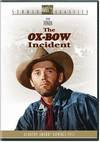On the Beach
Fail Safe
Dr. Strangelove or: How I Learned to Stop Worrying and Love the Bomb
As you can tell from the title of this posting, I have returned to seriousness – albeit with a film that is rather hilarious, considering the subject matter. But I thought it an appropriate topic with the concerns our world is currently facing – hostile nations seemingly determined to create their own nuclear arsenals and the fear that nuclear weapons will fall into the hands of global, or homegrown, terrorists who will have little compunction about using them.
To me, the whole idea of having a nuclear deterrent is stupidly misguided. It first began during World War II, when the Allies were concerned that Hitler’s Nazi regime would develop some kind of super weapon. Thus the birth of the United States’ Manhattan Project, which produced the nuclear devices that were used on Japan – twice – and ended that global conflict. Then after the world witnessed the power of such devices, the communism-inspired Soviet Union just had to develop its own nuclear weapons to ensure that the western capitalists wouldn’t attack without fear of retaliation. Thus the world began to engage in the ultimate game of chicken – a game which neither side could win and a game that was being played by unbending idealists who would be willing to destroy the entire human race to prove their ideological superiority. It was an idiotic idea then and it is still an idiotic idea today – especially when you consider the current crop of idiots who would like to possess these weapons.
It is very fitting that all the films in this posting (On the Beach, released in 1959; Fail Safe, 1964; and Dr. Strangelove, 1964) are black-and-white movies. This medium is perfect for the subject matter, with its genetic trait of an us-against-them mentality that sees, metaphorically, only black and white. I also want to add that I will not be discussing these films in chronological order, as I usually do.
In Fail Safe, a computer glitch leads to the deployment of a U.S. squadron of nuclear-armed jet fighters against the Soviet Union. The squadron’s target is Moscow and, according to the regulations built into the military’s nuclear defense strategy, after the squadron passes a certain point on the map, the pilots are instructed not to accept any countermanding orders from anyone – including the president of the United States. Fearful of starting a nuclear war, the U.S. president contacts the Russian premier and convinces his soviet counterpart that the attack is a mistake – a mistake that was helped along by soviet chicanery that was not intended to create the problem that it did.
The president, in a show of good faith, then orders his own military to provide information that would help the soviets shoot down the bombers. However, it eventually becomes apparent that at least one bomber will make it through the soviet defenses. In a last ditch effort to prevent all-out war, the president tells the soviet premier that he will order the nuclear destruction of New York City – where the president’s wife is shopping and the family of the pilot ordered to drop the sacrificial bomb lives.
Although two cities are destroyed and tens of millions of innocent people die, the movie shows sworn enemies cooperating to try to prevent a conflict that could get out of control and lead to the destruction of the planet. This is the one hopeful aspect of the film.
Dr. Strangelove is patterned after the previous movie but the apparent intent is to show the stupidity of the philosophy of nuclear deterrence. This time the problem is caused by the base commander of a U.S. Strategic Air Command post who takes it upon himself to rid the world of communism because he is convinced that the soviets have tainted the U.S. water supply with fluoride in an attempt to sap Americans of their bodily essences. He then kills himself to prevent anyone from finding the codes that will recall the bombers.
This story is filled with off-the-wall characters such as: the head of the U.S. nuclear research program, who is a former Nazi who is confined to a wheel chair and when he gets excited, he cannot prevent his arm from rising for a “seig heil” salute; an army general who promotes a limited nuclear war and is obsessed about some kind of strategic gap that will give the soviets a tactical advantage; a British military liaison who destroys a soda machine to get change to call the U.S. President; and an air force officer who warns the Brit that he will have to answer to the soda manufacturer for the destruction of the vending machine.
But my favorite character of this farce is the pilot of the bomber, a Texan who wears a cowboy hat. When the bomb gets stuck as the plane's crew is trying to drop it on the target, the pilot dislodges it by jumping on it and riding the weapon like it is a bronco in a rodeo show while he swings his hat and lets out of celebratory whoop on the way to his, and the world’s, destruction. This cowboy offers the perfect end for this movie – a stupid ideologue gleefully helping to destroy mankind.
On the Beach tells the story of the crew of a U.S. submarine that was submerged during a nuclear conflict that wiped out civilization, except for the inhabitants of Australia. With no place else to go because of the radiation levels, the submariners head for this last outpost of civilization. Although everyone remaining is aware that the deadly radiation will eventually consume their oasis, they continue to live their lives to the fullest measure that they can. And in the end, though the world is left completely depopulated, the final inhabitants leave a message for the audience – a banner hanging from a building in a town square that reads, if I recall correctly, “IT’S NOT TOO LATE.”
And that banner is why I wanted to make this movie the final one of this posting – because if we don’t get a grip on our nuclear proclivities and our self-righteous desires to insist that everyone adheres to the same ideological, philosophical, religious or whatever doctrines, it will be too late for all of us.
Subscribe to:
Post Comments (Atom)






























































No comments:
Post a Comment